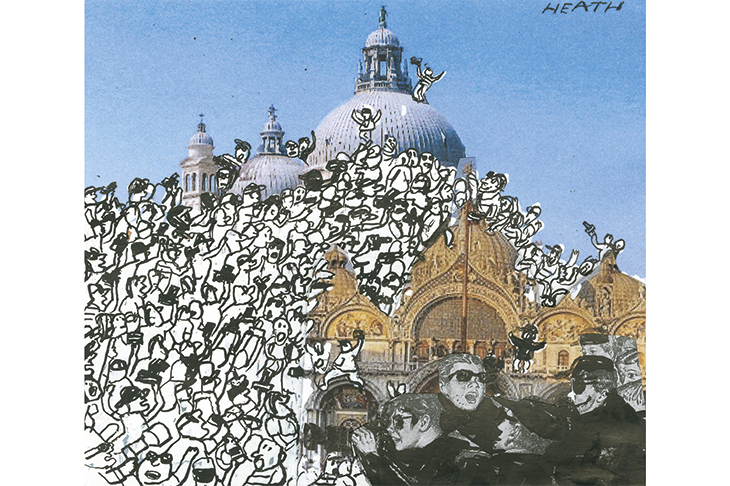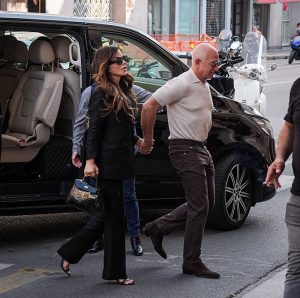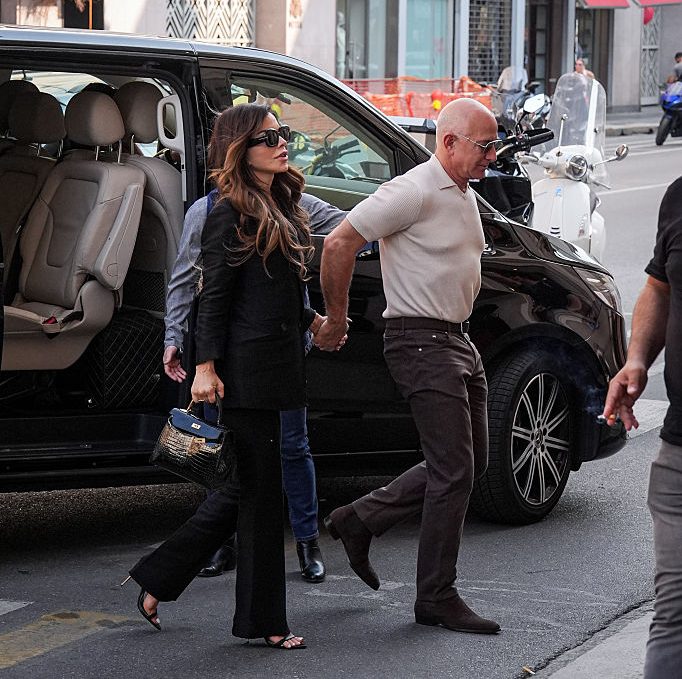Some of Venice’s problems are well known: the challenge of conserving her famous buildings, the dangers of poorly managed mass tourism — not to mention the fact that the city might well simply drown, a threat made all the more obvious by last week’s floods, the worst in 50 years. Since 1987 billions have been spent on the Mose project, a still unfinished and controversial system of underwater dams intended to protect the city from flooding. The authorities have repeatedly shifted the completion date: 1995, 2012, 2016 and now 2021. Venetians suspect these delays were just attempts to hide serious faults. They view the most recent floods as a clear sign of a major dysfunction in the way the city is politically managed.
But while the devastation of the floods may have caught the attention of the global media, less known to the outside world is the existential threat of depopulation, which may well soon extinguish Venice as a living city. No mayor of Venice has ever effectively attempted to reverse this fatal trend. Over the past 50 years the population has fallen from 150,000 to about 50,000 today, while the number of people living on the city’s mainland suburbs around Mestre has risen to 180,000. Mainlanders now outnumber Venetians by three to one, leading to what the UK-based charity Venice In Peril flagged as ‘a democratic emergency’.
Venice is no longer under the control of its inhabitants and it lacks an institution which could really defend it. For this reason, it’s holding its own referendum on separating from its mainland annexe on December 1 — and this is why the result of the ‘Venexit’ vote is so very important.
I was born in Venice and I can tell you how very different it is to the mainland. It might seem to a casual tourist like any other historic district, but this small city occupies a different reality to its neighbors. Mestre is like any provincial Italian town; Venice is extraordinary. It needs its own administration because it has such separate problems.
The islands of Venice ran their own affairs until 1926, when the fascist regime lumped them together with Mestre and Marghera — then fast-developing industrial areas on the mainland. At the beginning it wasn’t a problem since the majority of inhabitants still lived on the islands. But during the post-war economic boom, the population of the mainland grew until it was first double and then triple the size of Venice’s. The result is that the mayor of Venice now has to respond to the interests of the majority of his electorate, who live on the mainland. And in practice, what this has meant is that for decades a lot of the money collected in the name of saving Venice has actually been diverted to projects in Mestre.
There have been four previous Venexit referendums, but they’ve all failed. Of course they have. There are just too many vested interests. The present mayor, Luigi Brugnaro, promised in a written document before local elections that he would support the referendum, but after getting elected he not only didn’t promote it but even started several legal actions to stop it. Only after years of legal battles has the highest court in Rome finally given the green light to the referendum.
The trouble is that Venice’s vast tourist industry — 20 million visitors a year — is a major cash cow. All large speculators and their political cronies would prefer Venice to have no inhabitants at all since they’re just a nuisance, an obstacle to the flow of business. But Venice needs to be governed by its own citizens, who understand and care about its own particular problems.
Take the mega cruise ships which, despite protests, still pass in front of St Mark’s Square and occasionally crash into the fragile wharfs (it’s happened twice in the past year). Most people are not aware that the administration of Venice has no authority over the waters in front of the Doge’s Palace — they are under national jurisdiction. It is like the mayor of London having no say over what happens in Trafalgar Square.
Or look at the way in which Chinese capital has infiltrated the commercial tissue of the city. More and more bars and shops — entire streets — are being taken over by Chinese businesses. To keep a low profile, they often maintain an Italian front of house staff, but their focus is on mass tourism without any thought for the underlying fabric of the place. Chinese companies such as the Plateno Group are opening new hotels in Mestre to cater to the kind of tourist trade which is already seriously clogging the small streets of Venice. I have often encountered unfortunate foreigners who thought they had booked a lovely canal-side room only to find themselves in a grey bunker on the mainland. As long as Mestre goes under the official name of ‘Venice’, this is inevitable.
Anna Somers Cocks, founding editor of the Art Newspaper and former chairman of Venice In Peril, recently told me that ‘this referendum might be the start of a possible reversal of these negative trends, the possibility for a change, so that Venice could become a city again and not be reduced to an empty shell, the historic tourist centre of a larger Mestre’. I hope so.
In the past, cities have died two ways: either by violent conquest and destruction or by simple progressive oblivion by its own citizens. The fate of Venice is now in the hands of the last Venetians. They must vote on December 1, or else their city is lost.
This article was originally published in The Spectator’s UK magazine. Subscribe to the US edition here.


























